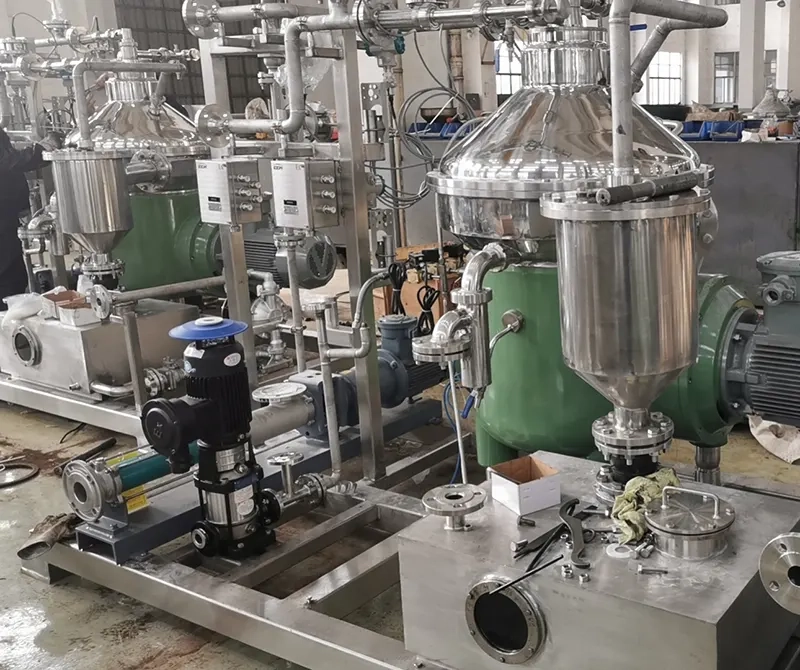Centrifugal separation is an important industrial process in heavy oil separation, which is widely used in petroleum refining, chemical and energy fields. Centrifuges, as the key equipment, play an indispensable role in heavy oil separation.
Centrifuges utilize centrifugal force and relative density differences to separate heavy oil from light oil in a mixture. Inside the centrifuge, the mixture to be separated is subjected to centrifugal force generated by high-speed rotation, which causes the heavy oil to be rapidly separated and deposited on the centrifuge wall, while the light oil is concentrated in the center section. The separated heavy and light oils are then collected and disposed of through different outlets.
The separation efficiency and separation quality of a centrifuge are influenced by a number of factors. Among them, the rotational speed of the centrifuge is an important parameter. A higher rotational speed can generate a greater centrifugal force and accelerate the separation process of heavy oil. In addition, the structure and size of the centrifuge also have an impact on the separation effect. Different centrifuge designs are suitable for different operating conditions and requirements.
Heavy oil separation is of great importance in the energy field. By separating heavy oil, the product quality in petroleum refining and chemical processes can be improved, while reducing environmental pollution and energy waste. The continuous development of centrifuge technology makes heavy oil separation more efficient and environmentally friendly, providing reliable technical support for industrial production.

Intergrated Disc centrifuge with pump line

